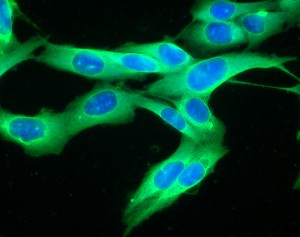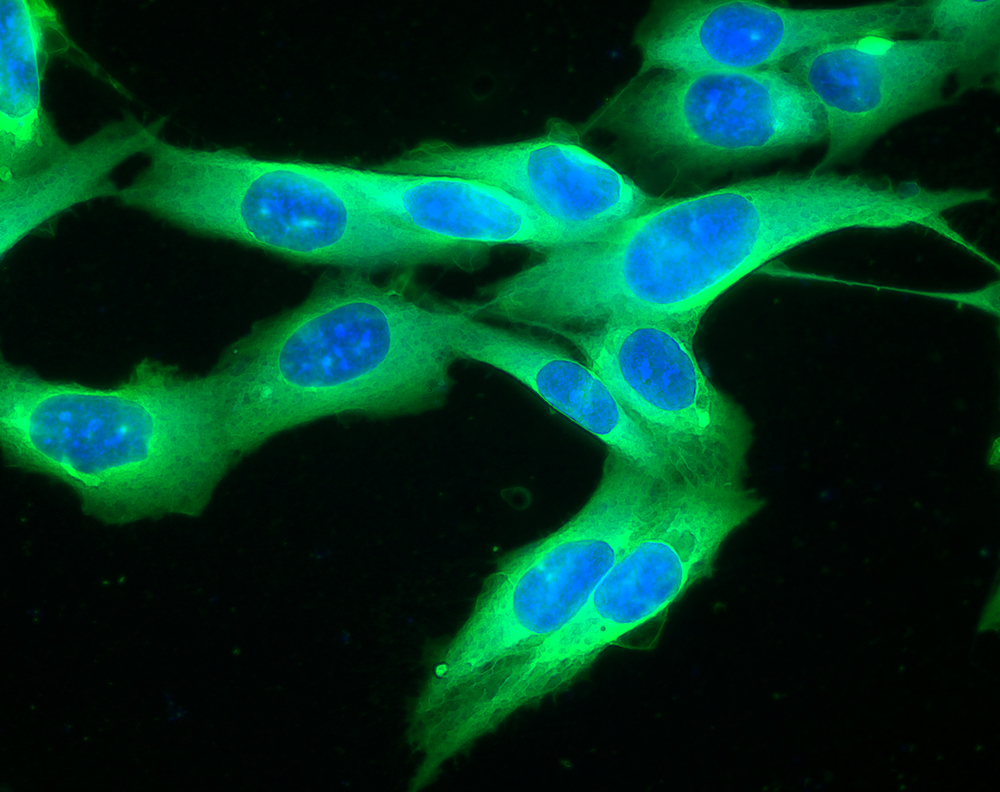 During the European Society for Medical Oncology (ESMO) 2014 Congress in Madrid, Spain, data from a clinical study assessing pembrolizumab for the treatment of melanoma showed promising activity and safety profiles.
During the European Society for Medical Oncology (ESMO) 2014 Congress in Madrid, Spain, data from a clinical study assessing pembrolizumab for the treatment of melanoma showed promising activity and safety profiles.
Pembrolizumab is a monoclonal antibody that can block both PD-L1 and PD-L2, two negative co-stimulatory receptors found on the surface of tumor cells. Upon binding to its PD-1 receptor, present in activated T lymphocytes, these ligands inhibit the effector function of immune cells, allowing cancer cells to proliferate without an effective immune surveillance.
Dr. Caroline Robert of the Institute Gustave Roussy, Villejuif, France, presented clinical data form the KEYNOTE-001 trial relative to pembrolizumab use in advanced melanoma patients, where dosages of 10 mg/kg every 2 weeks, 10 mg/kg and 2 mg/kg every 3 weeks, showed the same strong antitumor activity and safety profile.
Furthermore, previous data from this trial had already shown that both the 10 mg/kg and 2 mg/kg dosage every 3 weeks had the same efficacy and safety in these patients.
However, to confirm the efficiency of pembrolizumab at 10 mg/kg every three weeks (Q3W) and 10 mg/kg every two weeks (Q2W), 244 patients were enrolled and randomized into either one of these schedule groups, with response rates assessed every 12 weeks.
After 35 weeks of median follow-up, no significant differences in overall response rate (ORR) were observed (28% at Q3W vs 33% at Q2W). Furthermore, patients who were not treated with adjuvant ipilimumab (a monoclonal antibody against the CTLA-4 receptor) had an ORR of 33%, while those who received the treatment showed a 28% rate.
Disease control rate and progression free survival was of 44% vs 50% and 43% vs 47% for Q3W and Q2W treated patients, respectively.
Moreover, researchers observed that both schedules had the same safety profile, with only minor adverse side effects.
Altogether, the data obtained from the KEYNOTE trial has led clinicians to agree on a 2 mg/kg Q3W pembrolizumab dosage and schedule for the treatment of advanced melanoma.
Importantly, pembrolizumab has recently been approved in the US for the treatment of patients with unresectable or metastatic melanoma and disease progression following ipilimumab and, if BRAF V600 mutation positive, a BRAF inhibitor.


